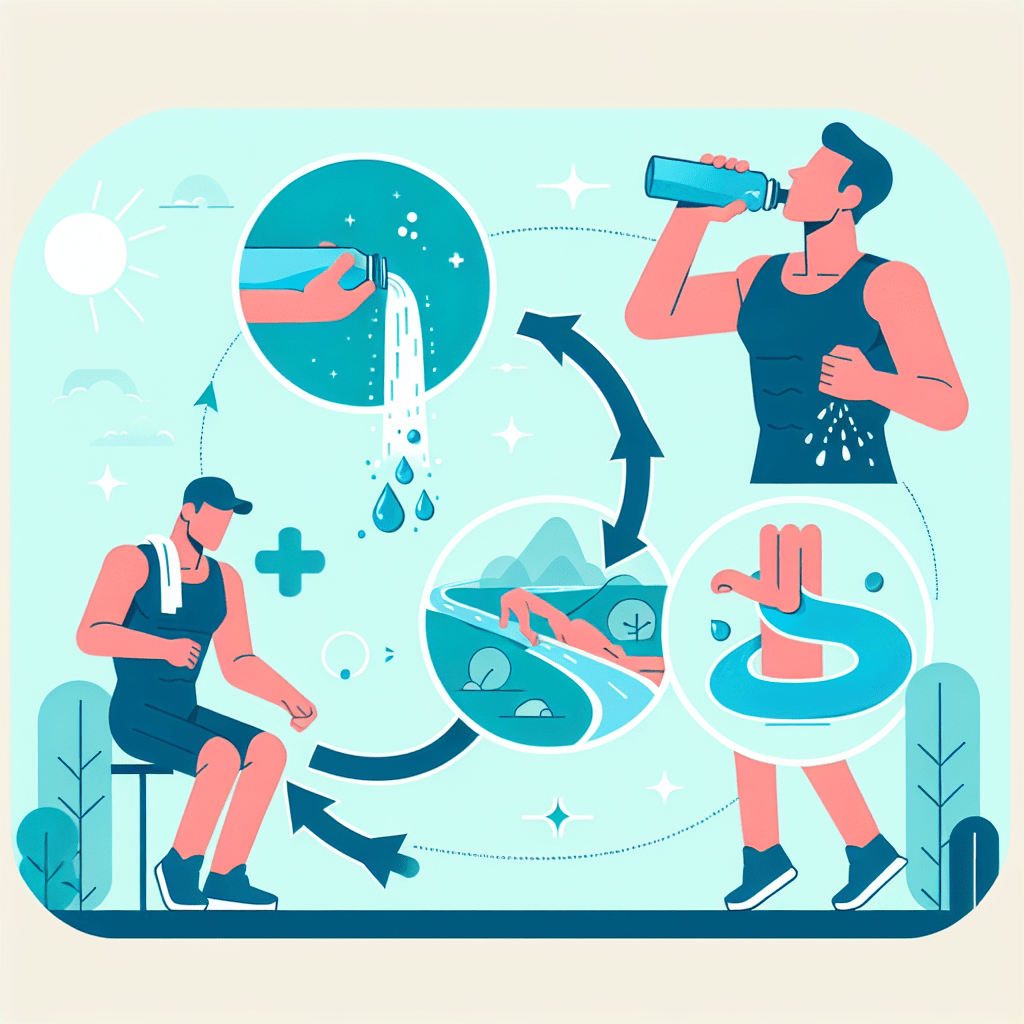Hydration and Recovery: How Water Helps You Heal After Exercise

Understanding the Importance of Hydration in Exercise Recovery
Hydration plays a critical role in our overall health and wellbeing, and its importance becomes even more pronounced when it comes to physical exercise and recovery. When we engage in physical activity, our bodies lose water and electrolytes through sweat, which can lead to dehydration if not properly replaced. This can have a negative impact on our performance and recovery, making hydration a crucial aspect of post-exercise recovery.
According to the American College of Sports Medicine, hydration before, during, and after exercise is crucial for heart health, and can help to prevent a range of health issues, including heat stroke and other heat-related illnesses. "Maintaining hydration can help to prevent dysfunctions in the heart and other muscles," the organization states.
"Dehydration can reduce the volume of blood pumped by the heart," American College of Sports Medicine.
How Water Helps in Recovery After Exercise
Water serves multiple functions in our body, making it essential for recovery after exercise. It helps to regulate our body temperature, lubricate our joints, transport nutrients to give us energy and keep us healthy, and flush out waste from our body.
After a workout, our muscles are often sore and inflamed. This is where water steps in. It aids in reducing inflammation and helps to repair the muscles faster, thus speeding up recovery. Moreover, water also helps to restore the balance of electrolytes, which are essential for normal function of our cells and organs.
"Water aids in reducing inflammation and helps to repair the muscles faster," Sports Nutritionist.
The Science Behind Hydration and Recovery
Scientific research supports the importance of hydration for exercise recovery. A study published in the Journal of Athletic Training found that proper hydration can help to reduce the damage to muscle tissue caused by exercise, thus aiding in faster recovery.
"Proper hydration can help to reduce the damage to muscle tissue caused by exercise," Journal of Athletic Training.
How Much Water Should You Drink?
The amount of water you need can depend on several factors, including the intensity of your exercise, the climate, your age, and your overall health. However, a general rule of thumb is to drink at least half of your body weight in ounces of water each day. For example, if you weigh 150 pounds, you should aim to drink at least 75 ounces of water daily. It's also important to listen to your body and drink when you're thirsty.
Other Hydrating Beverages
While water is the best choice for staying hydrated, other beverages can also contribute to your hydration status. These include sports drinks, which can help replace electrolytes lost during exercise, and milk, which provides protein to aid in muscle recovery. However, it's important to be mindful of the sugar content in these drinks, as excessive sugar can lead to other health issues.
Conclusion
In conclusion, staying hydrated is crucial for optimal recovery after exercise. Water plays a vital role in various bodily functions, including reducing inflammation, repairing muscles, and restoring electrolyte balance. As the American College of Sports Medicine aptly puts it:
"Maintaining hydration can help to prevent dysfunctions in the heart and other muscles."
So, the next time you finish a workout, remember to reach for a glass of water. Your body will thank you!
Summary
Hydration is crucial for post-exercise recovery and overall health. Water helps to regulate body temperature, lubricate joints, transport nutrients, and flush out waste. It also aids in reducing inflammation and repairing muscles, thus speeding up recovery. Other hydrating beverages, such as sports drinks and milk, can also contribute to hydration, but it's important to be mindful of their sugar content. As a general rule, aim to drink at least half of your body weight in ounces of water each day, and remember to listen to your body's thirst signals.



